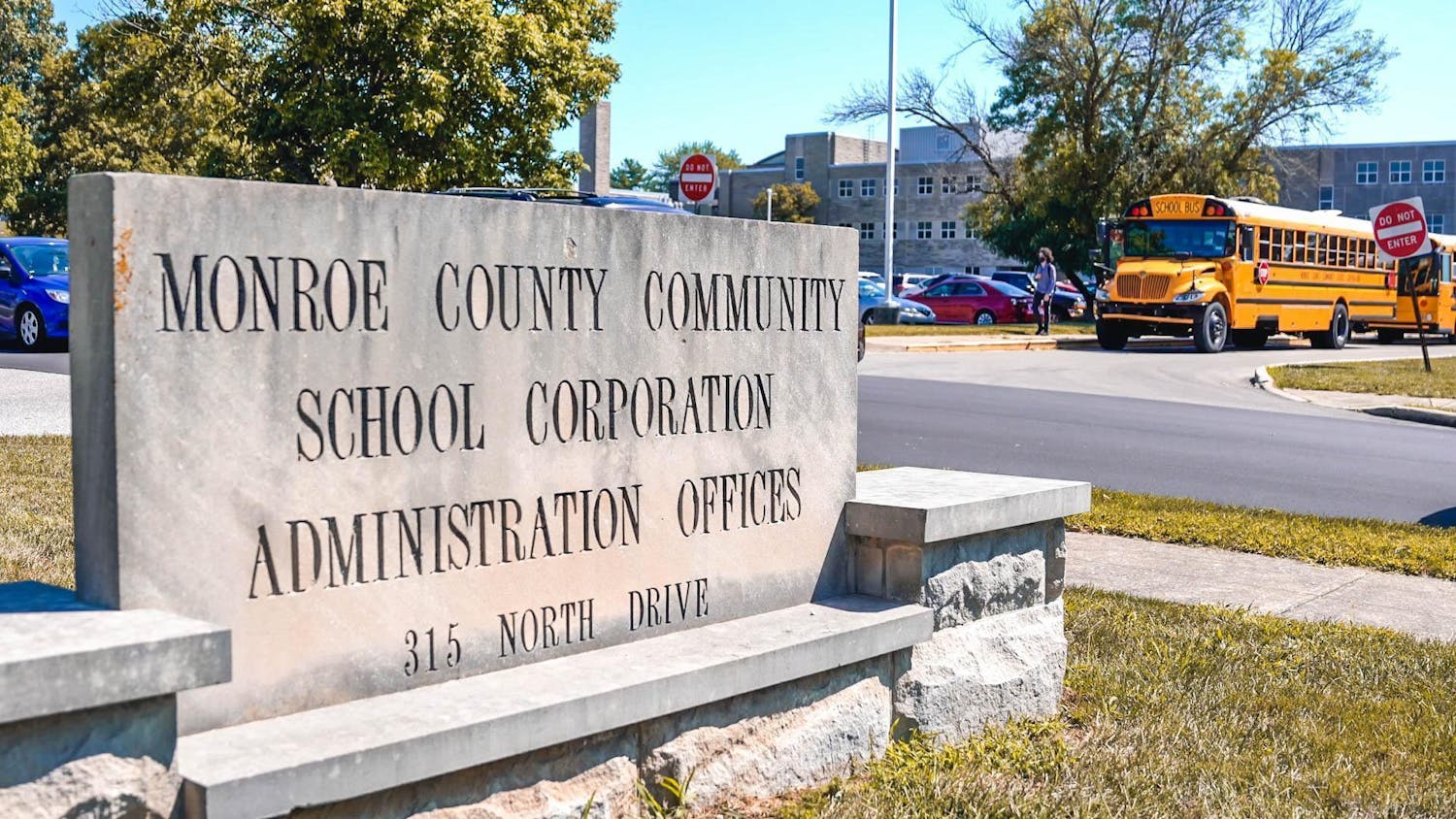Queer student advocate Aimes Dobbins, who identifies as gender nonbinary and uses they/them pronouns, sat in Wells Library last week with IU freshman Stella Winterman, who also identifies as gender nonbinary, reading through the Republican party’s platform.
“Undermine religion?” Dobbins said, pointing to the “First Amendment: Religious Liberty” section.
The section goes on to endorse the First Amendment Defense Act, which would bar the government from discriminating “against individuals and businesses for acting on the belief that marriage is the union of one man and one woman.”
“Okay, but our country was founded on the fact that we should be free of religion, not free to use our religion against other people,” Dobbins said.
The pair let out small chuckles as they read.
Winterman said it was a laugh of disbelief.
“I have to laugh because I’m so upset,” Dobbins said. “I hope you know that I really want to cry right now instead of laughing.”
As Tuesday’s election approaches, the question of platform importance remains.
While some of the LGBT community worries about discrimination, IU Associate Professor of Law Steve Sanders said the platforms have almost no real significance. Sanders is also affiliated with the Department of Gender Studies, the Kinsey Institute and the Department of Political Science.
“The platform is, in some ways, just as bad or worse on LGBT issues than any other Republican platform in history,” Sanders said. “I think that’s because Trump saw the platform as a bone that he didn’t care about, that he could throw to the anti-gay activists, so they could feel important for a week at the convention.”
Outside of the platforms, Sanders said, this is the first election in a long time in which LGBT issues have not been prominent.
For Sanders, there is one significant issue at the national level.
“And that is whether to have a federal law prohibiting employment and other forms of discrimination on the basis of sexual orientation and gender identity,” he said.
Sanders said this has received almost no attention and he’s not sure Clinton has ever even mentioned it.
In this year’s presidential debates, not a single question explicitly inquired about the LGBT community. However, the lack of presidential attention does not mean that nobody cares and does not discount the subtext of the platforms.
“The platform shows that, below the radar screen of what attracts the attention of the national media, there still is a lot of energy and a lot of zeal within the rank and file of the Republican party against LGBT rights,” Sanders said “That’s in some states more than others.”
According to IU sophomore Justin Sexton, an active Republican who identifies as gay, the decision to legalize same-sex marriage should rest with state-level elected officials, instead of the Supreme Court.
“Even though I benefit from the ruling, it still usurps what the people had expressed as their will in several states,” he said. “The people expressed their will, and nine judges who nobody voted for overturned that will, and I think the Republican party is right to stand up against judicial activism, which I think is the real fight there.”
Dobbins said the real fight is in separating church and state in a nation where even the Democratic party references “God-given potential” in its platform.
Both parties should also consult the people they aim to serve, Dobbins said, not just those who are gay, white and rich. They need to listen to queer people, too.
“A queer person is somebody who is politically aware,” Dobbins said. “It’s somebody who is actively breaking down the binaries of our systems, somebody who is challenging the way that a woman looks, a man looks, a person looks. It’s somebody constantly challenging everything.”



